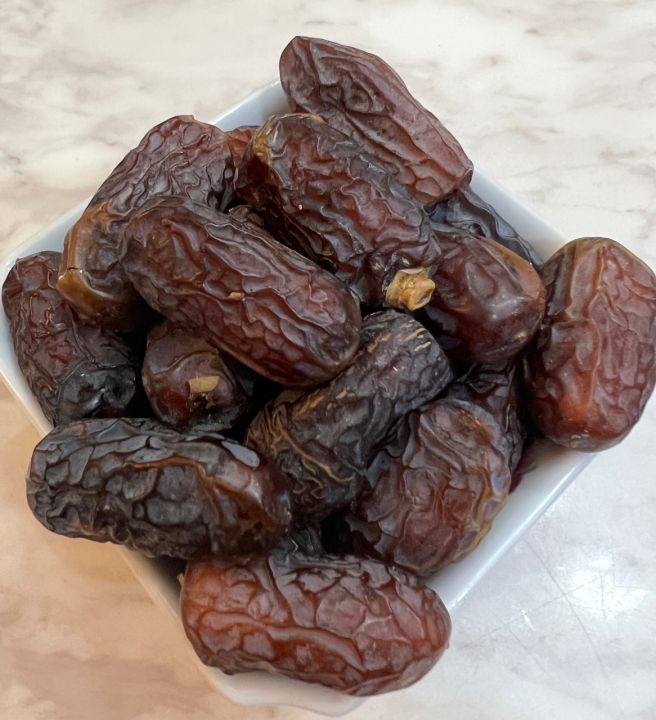Buah Kurma: Exploring the Cultural Significance

The Cultural Significance of Buah Kurma
Dates, known as buah kurma, hold immense cultural and religious significance in many faiths around the world. These delicious fruits have deep-rooted connections to various cultural beliefs and traditions, influencing their cultivation and consumption practices. This blog post explores the impact of cultural beliefs on date palm cultivation and the consumption of dates, shedding light on their religious importance, farming practices, culinary traditions, and festive celebrations.
The Religious Significance of Dates
1. Islam and Ramadhan
In Islam, dates hold great importance, particularly during the holy month of Ramadhan. Muslims break their fast with dates, following the example of the Prophet Muhammad. Dates are considered a blessed and nutritious food to provide energy after a day of fasting. The tradition of consuming dates during iftar (the evening meal to break the fast) has been passed down through generations and remains a significant practice during Ramadhan.
2. Judaism and Sukkot
In Judaism, dates are associated with the festival of Sukkot (Feast of Tabernacles). During this harvest festival, Jews traditionally eat the Seven Species, a group of foods including dates, to express gratitude for the bountiful harvest. Dates are also used in the construction of sukkahs (temporary dwellings) during the festival, symbolizing the sheltering of the Israelites during their journey through the desert.
3. Christianity and Palm Sunday
In Christianity, dates are linked to Palm Sunday, which commemorates Jesus’ entry into Jerusalem. It is said that palm branches were waved and scattered on the ground as a sign of honor and respect. While dates are not directly associated with this event, they are often used symbolically during Palm Sunday celebrations, representing the palm branches of the biblical story.
The Influence on Cultivation Practices
1. Geographic Suitability
Cultural beliefs and traditions influence the cultivation of date palms in regions where they hold religious significance. The geographic suitability of these regions, such as the Middle East, North Africa, and parts of South Asia, aligns with the historical and cultural context of dates. The presence of date palm groves in these areas is a testament to the connection between cultural beliefs and agricultural practices.
2. Traditional Farming Techniques
Cultural beliefs often shape the farming techniques employed in date palm cultivation. Traditional methods passed down through generations incorporate religious rituals and practices. For example, in some regions, date palms are irrigated using water from sacred sources or blessed before harvesting. These practices reflect the cultural reverence for dates and contribute to the preservation of traditional farming techniques.
Culinary Traditions and Festive Celebrations
1. Traditional Cuisine
Cultural beliefs influence the incorporation of dates into traditional cuisine. Dates are used in a variety of dishes, both sweet and savory, in different cultural cuisines. From date-filled pastries in the Middle East to date-based curries in South Asia, these culinary traditions showcase the versatility and significance of dates in cultural gastronomy.
2. Festive Offerings
Dates are often featured prominently during religious and festive celebrations. They are shared as gifts, offered to guests, and used in special dishes prepared for these occasions. The presence of dates during religious festivities adds a symbolic and traditional touch to the celebrations, fostering a sense of cultural identity and heritage.
Conclusion
Buah kurma, or date fruits, hold immense cultural and religious significance worldwide. Cultural beliefs and traditions influence the cultivation practices, farming techniques, culinary traditions, and festive celebrations associated with dates. Whether it is the practice of breaking the fast with dates during Ramadhan, using dates in traditional dishes, or incorporating them into symbolic rituals, the cultural importance of dates resonates in various aspects of people’s lives.
Key Highlights
– Dates hold religious significance in many faiths, including Islam, Judaism, and Christianity.
– Cultural beliefs influence the cultivation practices of date palms in regions where they hold religious importance.
– Traditional farming techniques incorporate religious rituals and practices.
– Dates are integral to culinary traditions and festive celebrations, showcasing their cultural importance.